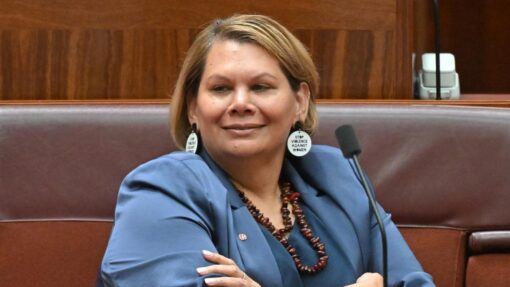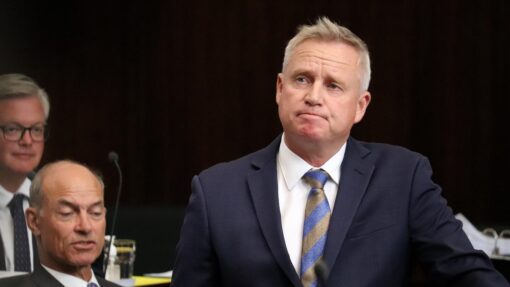Deportation, travel ban and dogs in detention laws pass
Farid Farid |

Restrictive migration laws giving government sweeping powers, from deporting non-citizens and paying countries to accept them to banning mobiles in immigration detention centres, have passed the Senate.
Following the coalition voicing its support and after some wrangling on whether the package of three bills would make the final cut, it was included in more than 30 bills passed on a frantic last day of federal parliament sitting.
Independent MPs, the Greens, human rights advocates and refugees slammed the bipartisan agreement to hastily usher them in without critical examination.
Asylum Seeker Resource Centre Deputy CEO Jana Favero said Thursday’s amendments were reminiscent of the fast-track visa process for asylum seekers passed a decade ago also in the last days of sitting under the Abbott government.
“Tonight history repeated itself with three migration bills passing, which are an attack on the rights of refugees, separate families and return people to harm,” she told AAP.
“Different government but same shameful result and cruelty.”

Award-winning Kurdish-Iranian author Behrouz Boochani, who chronicled his offshore detention on Manus Island for several years, said refugees were the ultimate scapegoats of the rushed tough legislation.
“The Australian government is following the same pattern of using refugees as political tools close to elections,” he tweeted late Thursday.
“As always, refugees – one of the most marginalised communities – are easy targets.”
Legal experts said the laws would fundamentally remake Australia’s migration system regressively worse.
Jane McAdam, founding director of the UNSW Kaldor Centre for International Refugee Law, noted the laws hark back to the long-running White Australia policy in their legal scope and potential fallout.
“The Immigration Restriction Act of 1901 was the first piece of legislation passed by the federal parliament… it seems that many of our current politicians are hell-bent on infusing today’s politics with the same exclusionary sentiments,” she said.
The government’s Migration Act amendments include measures such as paying third countries to accept deported foreign nationals who have been convicted of crimes but would potentially extend to a large cohort of non-citizens totalling over 80,000.
A parliamentary inquiry revealed the figure earlier this month but the Department of Home Affairs maintains the legislation would impact about 5000 people on bridging visas and another 1000 in immigration and community detention.

Liberal immigration spokesman Dan Tehan said the coalition negotiated with the government to bolster the bills in order to maintain community safety.
He was referring to the landmark High Court ruling in 2023, which found indefinite immigration detention was unlawful and unconstitutional.
It triggered the release of some 200 detainees with criminal offences who were strapped with ankle monitors and slapped with curfews.
These measures were again challenged in the High Court earlier this month that deemed them punitive.
Last-minute recommendations easing restrictions in a second bill banning mobile phones in immigration detention were made by a Labor-led parliamentary human rights committee in a scrutiny report on Wednesday.
The laws give officers in the detention centres broad new powers to strip search detainees without a warrant, including the use of sniffer dogs.
Home Affairs Minister Tony Burke said the powers were needed to end a “prison-like” culture.
Committee member and independent MP Kylea Tink countered that “detention centres are not jails” and Australian Human Rights Commissioner Lorraine Finlay also flatly rejected Mr Burke’s interpretation.

Labor while in opposition had voted against a similar bill in 2020.
The third bill, which Labor first introduced in March, gives the home affairs minister unilateral power to ban visa classes for relatives of asylum-seekers from blacklisted nations that don’t accept deportees.
Dubbing the revived bill as a “Trump-style travel ban”, Greens senator David Shoebridge said it would separate families and tear apart multicultural communities.
He said the laws were a “generational attack… that will undermine multicultural Australia.”
AAP


